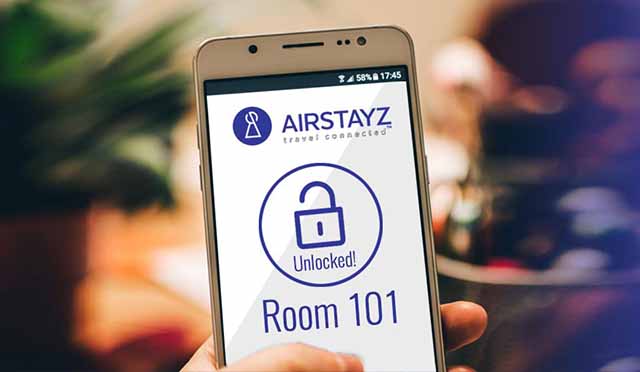
The travel industry is one that could highly benefit from transitioning to blockchain technology – and it needs to do so immediately.
Despite substantial and continuous developments in engineering new machines for transportation, the supporting services attached to them have not progressed at the same pace. As international travel has become more and more common, the lapses and deficiencies of the stunted travel industry are painfully evident.
To start with, the current system forces travelers to queue up way too many times before they can even get to their hotel – from airport check-ins to the baggage carousel to getting a cab to their hotel. Today, ride-hailing services eliminate the need to queue up for rides physically, so that’s an improvement. The tedious series of queues doesn’t end there: guests still have to fall in line again to check in at their hotel after already going through grueling hours of travel.
Additionally, flight delays and cancellations are an accepted (although dreaded) possibility for anyone traveling by plane. While the frustrations these incidents cause may be unavoidable, their aftermath can be handled better. Yet passengers are subjected to even more stressful processes afterward, and both the passengers and the airline’s reputation suffers as a result.
Recent developments in technology, however, can enable the travel services industry to step up their game. Several start-ups have risen to the challenge and are developing the best possible solutions to leverage blockchain technology to make traveling a lot less stressful. Below are some companies working on projects that will make traveling as seamless as possible.
Trustabit

Trustabit is working on tokenizing airline rewards to eliminate redundancies in rebooking passengers whose flights have been delayed or canceled. By automating the issuance of vouchers for passengers, the airline service industry can save passengers from having to explain why they deserve airline credits and how much.
This redundancy happens because of a lack of a streamlined communication process between service personnel and the airline company. Solving the problem with a blockchain-based system not only saves passengers from a lot of hassle and frustration—it can also save airlines from having to hire so many customer service personnel while keeping their customer satisfaction rates high.
Cool Cousin

Current reviews of local attractions and businesses have been tainted with profit-oriented partnerships between websites supposedly offering reviews and businesses within a given locale. Honest reviews have been replaced with biased promotions disguised as testimonials. Cool Cousin aims to break this down in favor of more authentic and honest guidance from those who are most knowledgeable about the place – the locals. Instead of overpriced travel agents, this new economy taps into local guides or “Cousins” to give travelers better experience at less cost.
Airstayz

Airstayz is a marketplace made up of an ecosystem of travel service providers – hotels, restaurants, transport providers, event venues, and other local businesses – where travelers can easily pick and choose all the services they will need for their trip all in one place. A reputation system is also employed to ensure that guests make informed decisions when picking from providers within the platform.
A unique feature of Airstayz is that travelers using it will no longer have to fall in line to check in at a hotel. Using a mobile digital key, guests can simply walk in or out – no need to go to the reception. Guests can simply go straight to their hotel room and finally relax after a long commute.
The Airstayz economy runs on the STAY token and has established an extensive hotel client base in Australia but will be quickly expanding throughout the Americas and Europe in 2018.
With the exception of dipping rates in 2009, the global tourism industry has steadily grown year after year. In 2016, Europe accounted for more than half of all arrivals and the region is showing no signs of losing its wanderlust luster to tourists from around the globe. By 2030, it is predicted that global tourism arrivals could even exceed 1.8 billion. This is where Airstayz and its token STAY will play a significant role by connecting all the concierge points or segments that compliments such a growing industry in the world.
Sandblock

The processes involved in redeeming rewards from today’s loyalty programs for travel and tourism are not gaining much favor from their customers. Sandblock is a platform that enables companies to tokenize loyalty rewards and enable customers to redeem them much easier.
Customers no longer need to go through long processes to redeem their points – they can even exchange their points for fiat currency. Through Sandblock, travel companies can actually improve customer loyalty with less effort and less cost.
Travel Ledger
Travel Ledger is a supporting service that stores records of transactions and billing records between buyers and sellers for all travel services apart from flight records. Travel agents, tour operators, accommodation wholesalers, hotel companies, car rental suppliers, cruise companies, and any other service that a traveler engages with can rely on Travel Ledger as a “single source of truth.”
The billing and settlement platform can benefit travel companies in that the records will all be automatically stored in a uniform manner, which would make it so much easier to track and audit statements and invoices from suppliers. The ledger can also aid in case of disputes.
Do you think the travel and tourism industries can benefit from blockchain-based solutions like these? Are there any others that you would add to the list? Let us know in the comments below.
Images courtesy of Shutterstock


















